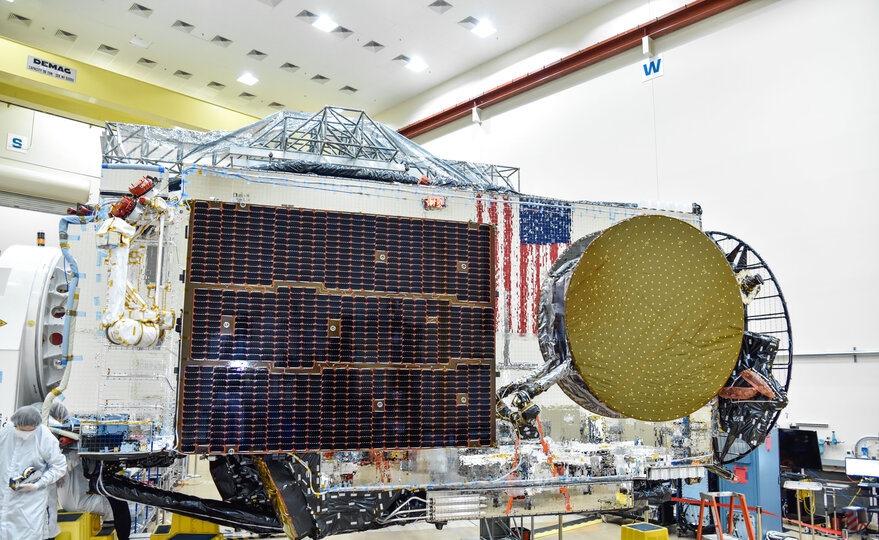TAMPA, Fla. — EchoStar said its long-awaited Jupiter 3 satellite should be ready for a Falcon Heavy launch in August, although its deployment faces further delays if a higher priority government project takes this window.
The 500 gigabit-per-second Americas-focused satellite, originally slated to launch in 2021 before production delays at Maxar Technologies, is needed to relieve broadband capacity constraints that have led to subscriber losses for the operator.
Broadband subscribers at EchoStar’s service provider subsidiary Hughes fell 51,000 over the three months ended March 31 to about 1.18 million, the company reported May 9.
Existing U.S. subscribers are using about 15% more bandwidth on average year-on-year, compounding the operator’s capacity woes as fierce competition also takes a toll on consumer subscriber levels.
EchoStar said a strategy to allocate existing capacity to more profitable consumer areas and enterprise customers helped temper subscriber levels in Latin America.
Still, consolidated revenue fell 12.3% year-over-year to $439.6 million for the first quarter of 2023.
Adjusted EBITDA, or earnings before interest, taxes, depreciation, and amortization, dropped 18.6% to $135 million.
Incoming capacity to the rescue
EchoStar said it expects Maxar to ship Jupiter 3 to its Florida launch site in June.
Although SpaceX has reserved an August launch slot, the operator warned this remains “subject to preemption by certain higher-priority government launches.”
SpaceX is projected to use a Falcon Heavy to launch the Space Force’s unspecified USSF-52 mission in July. A Falcon Heavy is also lined up to launch NASA’s Psyche asteroid exploration mission in October. Both missions have suffered delays amid payload readiness and range scheduling issues.
Delivering Jupiter 3 in June would save Maxar from making additional payments to EchoStar under a compensation plan agreed last year because of the production delays.
The Ka-band satellite, which would more than double the capacity of Jupiter 2 that launched in 2017, is slated to enter commercial service in the final three months of 2023.
Other growth avenues
EchoStar is continuing to search for investment opportunities with the $1.7 billion cash it has in reserve.
In February, the company ordered 28 small satellites from Astro Digital for an S-band constellation called Lyra that it expects to start launching next year for connecting remote Internet of Things (IoT) devices.
EchoStar said it is also in the design and engineering phase for a larger connectivity constellation of hundreds of satellites for deployment over the second half of this decade.
While EchoStar said May 9 it is too early to discuss details about this constellation, the company said it would offer higher bandwidth 5G services amid its push into providing connectivity directly to devices.
